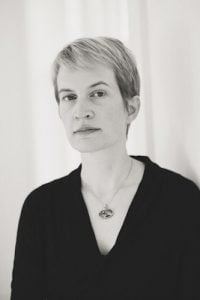 Stephanie Carpenter has published an omnibus book review in the Fall 2018 issue of The Missouri Review. Her piece, “The End of the World as We Know It: Four Novels of Climate Change,” considers new novels by Louise Erdrich, Jenni Fagan, Paul Kingsnorth and James Bradley. Carpenter will again teach Literature and the Environment (HU 3508) in Fall 2020.
Stephanie Carpenter has published an omnibus book review in the Fall 2018 issue of The Missouri Review. Her piece, “The End of the World as We Know It: Four Novels of Climate Change,” considers new novels by Louise Erdrich, Jenni Fagan, Paul Kingsnorth and James Bradley. Carpenter will again teach Literature and the Environment (HU 3508) in Fall 2020.
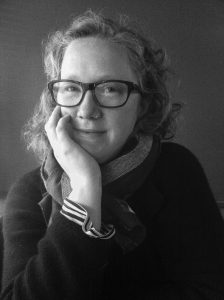 Award-winning fiction writer Diane Cook will give a reading from her work from 4:30 to 5:30 p.m. Tuesday (Nov. 6) in ME-EM 112.
Award-winning fiction writer Diane Cook will give a reading from her work from 4:30 to 5:30 p.m. Tuesday (Nov. 6) in ME-EM 112.
Cook is the author of the story collection Man V. Nature, and was formerly a producer for the public radio show This American Life. Man V. Nature was a finalist for the Guardian First Book Award, Believer Book Award and the Los Angeles Times Art Seidenbaum Award for First Fiction.
Cook’s stories have appeared in Harper’s, Tin House, Granta and elsewhere and have been anthologized in Best American Short Stories and The O. Henry Prize Stories. Cook is the recipient of a 2016 fellowship from the National Endowment for the Arts. A Michigan native, she has served as a National Park volunteer on Isle Royale.
The reading is free and open to the public. A reception and book signing will follow, with books available for purchase at the door.
This event is sponsored by the English Program, Department of Humanities and the Visiting Professor Lecturer/Scholar Series (VPLSS), which is funded by a grant to the Provost’s Office from the State of Michigan’s King-Chavez-Parks Initiative.
 Stephanie Carpenter, senior lecturer in creative writing and literature, was a featured reader at the second annual Flint Literary Festival held on October 27.
Stephanie Carpenter, senior lecturer in creative writing and literature, was a featured reader at the second annual Flint Literary Festival held on October 27.
Carpenter gave a talk called “Re-creating History,” reading from her own fiction and discussing how creative writers use objects and documents to imagine or uncover stories at the margins of the historical record.
Mona Hanna-Attisha and Journalist Anna Clark headlined the festival, reading from their works about the ongoing Flint water crisis.
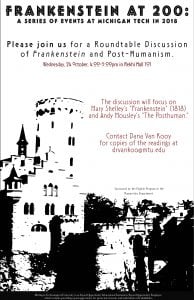
Join us from 4 to 5 p.m. Wednesday (Oct. 24), in Rekhi Hall 101 for a roundtable discussion on posthumanism.
In Mary Shelley’s “Frankenstein” or “The Modern Prometheus,” characters ask one another and the novel’s readers what it is to be human: “Do you understand this feeling?” “Was [humanity] at once so powerful, so virtuous and magnificent, yet so vicious and base?” and “The picture I present to you is peaceful and human, and you must feel that you could deny it only in the wantonness of power and cruelty.”
Echoing Prometheus, Hamlet and Faust, these characters contemplate and unsettle the boundaries between the human and the inhuman, between the automaton, the monstrous and the machine; between the godly and the ungodly, between what is natural and unnatural.
To continue our celebration of the 200-year publication anniversary of Mary Shelley’s “Frankenstein,” we are hosting a roundtable discussion about posthumanism. What does it mean to live in a time of increasingly sophisticated embodiments of artificial intelligence, dehumanizing economies, diminishing resources and environmental catastrophes?
To focus our discussion we’ll be reading Andy Mousley’s short article, The Posthuman, which speaks to the depiction of posthuman figures and realities in Mary Shelley’s Frankenstein.
Everyone is welcome. Contact Dana Van Kooy for a copy of the article.
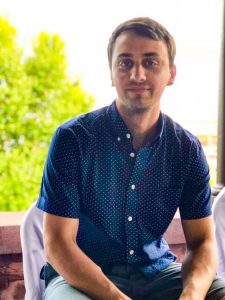 What do libraries have to do with farmer’s markets? What is a “book bike?” And why was there a Nerf gun battle in the library last Friday night?
What do libraries have to do with farmer’s markets? What is a “book bike?” And why was there a Nerf gun battle in the library last Friday night?
Dillon Geshel (English, ’13), Director of the Portage Lake District Library, can tell you, and his efforts to expand community outreach at the library have recently been recognized by his peers. Geshel has been selected for this year’s “Up and Comer Award” by the Michigan Library Association (MLA). This award is given each year to an early-career librarian who is “expanding the role of librarian by being forward-thinking and moving libraries into the future.”
“Winners of this award are energetic, efficient librarians who push the boundaries of originality and creativity and help to establish a library culture that sets high expectations, promotes learning, and creates understanding of the library as an integral part of the community,” said Rachel Ash, MLA communications and membership manager.
“Libraries have so much to offer their community beyond the books on their shelves, and I’m passionate about the non-traditional ways we’re able to meet community needs,” says Geshel. “This award really speaks to the Portage Lake District Library’s ability to do that work in a meaningful way.”
Geshel will accept the award in mid-October at the MLA annual conference in Novi, Michigan.
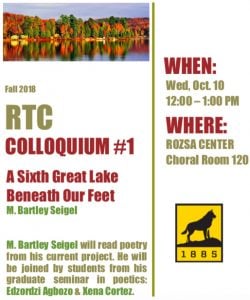 The Department of Humanities is pleased to announce the first Rhetoric, Theory and Culture Colloquium of the semester titled A Sixth Great Lake Beneath Our Feet. Professor M. Bartley Seigel will read poetry from his current project and will be joined by students from his graduate seminar in poetics: Edzordzi Agbozo & Xena Cortez. Seigel is the author of the poetry collection, This Is What They Say, (Typecast Publishing, 2013).
The Department of Humanities is pleased to announce the first Rhetoric, Theory and Culture Colloquium of the semester titled A Sixth Great Lake Beneath Our Feet. Professor M. Bartley Seigel will read poetry from his current project and will be joined by students from his graduate seminar in poetics: Edzordzi Agbozo & Xena Cortez. Seigel is the author of the poetry collection, This Is What They Say, (Typecast Publishing, 2013).
Please join us on Wednesday, October 10 at 12 p.m. (noon) in the Rozsa Center Choral Room 120.
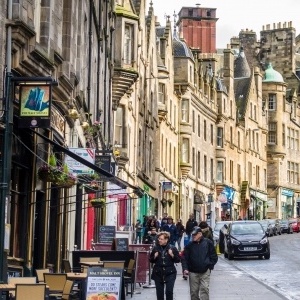 Humanities professor Dana Van Kooy, along with Carl Blair (SS), and Libby Meyer (VPA) will host an information session for Cumbria 2019, a faculty-led study abroad program in northern England and southern Scotland: summer, Track B. The session will take place from 6 to 7 p.m. Wednesday (Oct. 10) in Fisher 130.
Humanities professor Dana Van Kooy, along with Carl Blair (SS), and Libby Meyer (VPA) will host an information session for Cumbria 2019, a faculty-led study abroad program in northern England and southern Scotland: summer, Track B. The session will take place from 6 to 7 p.m. Wednesday (Oct. 10) in Fisher 130.
We welcome students from across campus. This program offers students an opportunity for foreign travel and for fulfilling HASS (humanities, arts and social sciences) and other General Education requirements in the fields of history, literature, music and archaeology. This session will provide students with information about course offerings, field trips, the application process, costs and scholarships.
 Dana Van Kooy has been awarded a 2018-19 Lewis Walpole Library Fellowship at Yale University for her book project, “Atlantic Configurations of Early Modernity and the Aesthetics of Disappearance.”
Dana Van Kooy has been awarded a 2018-19 Lewis Walpole Library Fellowship at Yale University for her book project, “Atlantic Configurations of Early Modernity and the Aesthetics of Disappearance.”
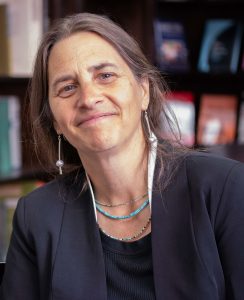 Dana Van Kooy presented “Island(s) of Resistance: Configuring the Geographical Spaces of Atlantic History” at the Resistance in the Spirit of Romanticism conference at the University of Colorado, Boulder on September 6. Her essay was included on a panel about “Resistance around the Atlantic.”
Dana Van Kooy presented “Island(s) of Resistance: Configuring the Geographical Spaces of Atlantic History” at the Resistance in the Spirit of Romanticism conference at the University of Colorado, Boulder on September 6. Her essay was included on a panel about “Resistance around the Atlantic.”
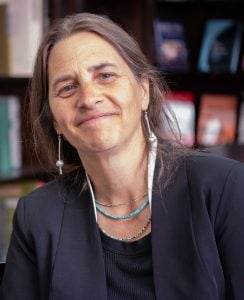 Dana Van Kooy has edited a special edition of essays about Teaching Romantic-period drama for Romantic Textualities, a peer-reviewed, online journal. These eight essays contribute new insights about a variety of topics, including William Blake, visual spectacle and theatrical form, the intersections between biography and tragedy in Mary Mitford’s work, gender and Goethe’s “Faust,” politics and Sheridan’s “Pizarro,” and the changing cultural landscape of the Atlantic world in George Colman the Younger’s “Inkle & Yarico.”
Dana Van Kooy has edited a special edition of essays about Teaching Romantic-period drama for Romantic Textualities, a peer-reviewed, online journal. These eight essays contribute new insights about a variety of topics, including William Blake, visual spectacle and theatrical form, the intersections between biography and tragedy in Mary Mitford’s work, gender and Goethe’s “Faust,” politics and Sheridan’s “Pizarro,” and the changing cultural landscape of the Atlantic world in George Colman the Younger’s “Inkle & Yarico.”
Each highlights the relevance of Romantic-period drama and theatre as a textual, performative, and a visual art form. Contributors include scholars from University of Pittsburgh, UCLA, Aldo Moro University (Italy), Mount Saint Vincent University (Canada), Montclair State University, and the University of Colorado at Boulder.